The 2021 US Open Pool Championship had a buzz to it like no other. After all, the last edition was back in 2019 before the Covid-19 pandemic forced anything resembling normal life to grind to a halt.
At the Harrah’s Resort in Atlantic City, New Jersey, 256 players started the competition, hoping to be the last one standing and be crowned a major winner. Most were simply happy to be back playing tournament pool, well aware that travel restrictions meant many others had to stay home, especially those in the Philippines, Taiwan and China.
Five intense days of competition has seen all but 16 players eliminated, and no one was betting against Shane van Boening winning the title for a sixth time and picking up the top prize of US$50,000. The 38-year-old American is a modern legend in pool, with over 100 tournament wins, including all of the world’s major titles across pool’s many disciplines – 8-ball, 9-ball, 10-ball, One Pocket, Bank Pool, Straight Pool – just name your game.
But even the South Dakota Kid himself could not have expected to be staring at a 5-0 hole against an opponent who has yet to even earn himself a nickname. After losing the lag, van Boening could only watch as Aloysius Yapp went on a tear, seizing the early initiative in the race to 11. But a botched 2-9 combo by the Singaporean upstart has given the American his first trip to the table, and an opportunity perhaps to find his way back into the contest.
What followed was one of those controversial episodes in sports that you wish never happened. At the US Open, a player gets 30 seconds to make each shot (60 seconds for the first shot after the break) and one extension per rack. Facing a tough shot on the 2-ball, van Boening lingered as he weighed his options and appeared to turn to the time-keeper to ask for his extension. What was clear was that the time-keeper did not hear it, and the referee jumped in when the clock ran out on the American.
Van Boening is hearing impaired and his disability is one of the reasons his career achievements have always been held with extra regard. His achievements made him a deserved Player of the Decade for the 2010s, so crowned by the industry’s most influential magazine, Billiards Digest. And van Boening would often play his matches without turning on his hearing aid, a move regarded a handicap or an advantage, depending which side of the fence you’re on.
In the match against Yapp, it appeared to have worked against him as he did not hear the beeps as the clock ran down. While the referee checked out the TV replay to confirm whether or not the extension had been called, Yapp walked over to ask for van Boening to have his shot, in effect backing the American’s insistence he’d ask for more time as he’s allowed to. After a lengthy delay, it appeared Emily Frazer, Managing Director of Matchroom Pool that organised the event, stepped in to defuse the situation and van Boening was allowed to play on.
While the jury’s still out on whether van Boening actually called the extension or merely thought he did (video above), there was no argument about Yapp’s classy gesture. For days afterwards, the pool grapevine buzzed about this up-and-coming Singaporean whose name the commentators struggled with but is proving to be a genuine, all-round good guy. When it emerged later that Yapp had told Frazer he would play a deliberate foul to allow van Boening back at the table – had the referee insisted the American transgressed – his reputation was further enhanced.
Yapp would go on to beat van Boening 11-5 before taking out Rodrigo Geronimo and Dennis Orcollo by identical 11-6 margins. But Carlo Biado in the final would prove one Filipino too far for the Singaporean. Failing to capitalise on an 8-3 lead, a mistake late in the 12th rack allowed the 2017 World Champion back at the table and he proceeded to run off 10 racks in-a-row for the win. Biado’s victory made him the first Filipino in 27 years to pick up the coveted title after the legendary Efren Reyes.
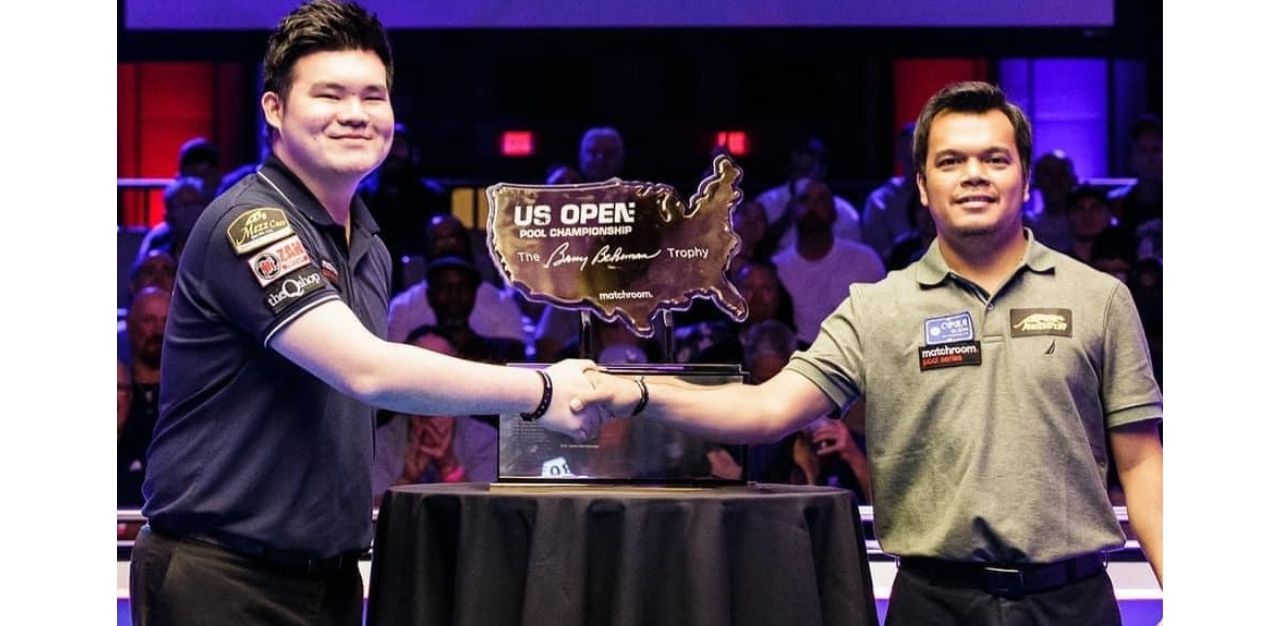
As for Yapp, the runner-up finish gave him his career biggest paycheque of US$25,000 and signalled his arrival into pool’s elite company, apart from winning himself a legion of new fans. It also validated a decision he took years ago to quit school and commit himself to playing pool fulltime.
Ready for the next step
Four years after embarking on his pool journey via a toy table, young Aloysius Yapp was becoming quite a useful player. All those hours spent at TheQshop were starting to pay off, and Uncle Paul Pang was a patient teacher, as were his sons who ran the shop with him, even opening the shop on their days off so that young Aloysius could play. But there was still so much to learn.
Pool, in essence, looks a simple enough game – you start with a break, and proceed to clear the table by potting each numbered ball in ascending order. But the best players have killer breaks, often able to get at least one ball to drop, and they seem to have the cue ball on a string as they work their way from one ball to the next until there are none left to play. Cue ball control is what separates the best from the rest, and Aloysius wanted to be the best.
He also wanted to start playing tournaments – to be able to pit his skills against other players and see how his game holds up to others. After all, the best players are the ones who are constantly being tested and tempered by the heat of competition. But Uncle Paul had kept him away from competition, and from other players of his age, not wishing to expose him in any manner.
For his 12th birthday in 2008, Aloysius received a splendid birthday gift – a 7-foot pool table of his own, installed by the crew from TheQshop, right in the middle of his living room.
Said his mother Angie Tay, “For his age, he wasn’t able to play in the pool halls, so after realising he has the talent and seeing his passion for the game, I thought a 7-footer at home would be good for him to continue his practice whenever he has time. That table still occupies the centre of our HDB living room. So, I don’t have a coffee table in my living room, it’s the sofa set and a pool table.
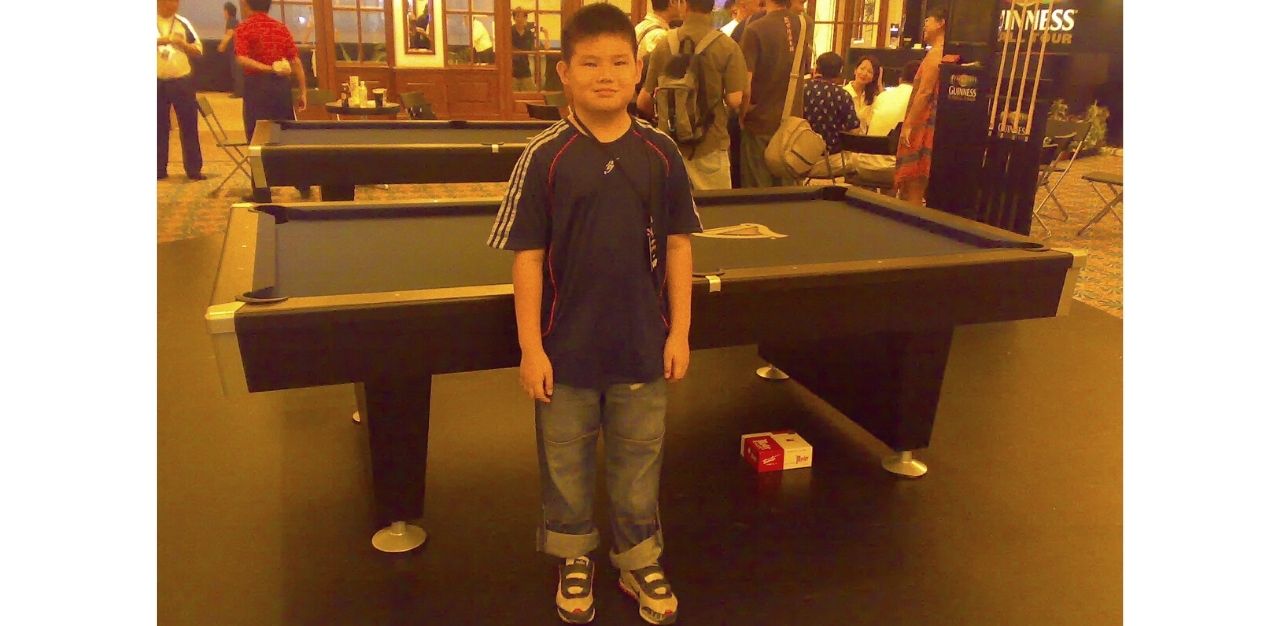
Turning 12 also meant sitting for his Primary School Leaving Examinations (PSLE), like all school-going children in Singapore do at that age. There wasn’t much expectation for him to do exceptionally well, as even Tay admitted that so long her son passes his examinations, that would be good enough. But for young Aloysius, there was an added incentive for him to do well – Uncle Paul had promised him a new pool cue, one that he had long coveted.
“He was already talking about turning pro and going for competitions,” says Paul Pang, “and I said to him, ‘no way, you have to pass your PSLE first’.
“So I set him a target of 180 points for his PSLE, which was a very average score, and told him if he could hit the mark, I would present him the Predator limited edition cue. It costs over S$1,000 and I knew he’d been eyeing it for a long time. I also said I would bring him to the World Junior Championship.
“When the results were out, he came back to tell me he didn’t manage to hit the 180-point mark but managed to pass. I told him ‘I’m sorry, I can’t give you the cue’.”
But Pang still brought young Aloysius to the World Junior 9-Ball Championship that December in Reno, Nevada, which proved another turning point in the young pool ace’s journey.
A life-changing experience
Since its inception in 1992, the annual World Junior 9-Ball Championship has proven a significant tournament for up-and-coming players, with many of its finalists going on to bigger things. Three-time finalist Ko Pin-yi of Taiwan, who won twice, went on to pick up the senior title in 2015. Fedor Gorst, who won the junior title in 2017 when it was held in his native Moscow, went on to win the senior title two years later with a 13-11 result over Taiwan’s Chang Jung-lin, who himself was a two-time runner-up in the junior competition (2001 and 2003). Yapp’s hero Wu Chia-ching was the junior runner-up in 2004 before nabbing the senior crown the very next year as a 16-year-old, and is still the youngest-ever world senior champion.
But for 12-year-old Aloysius back in 2008, the World Juniors in Reno was the very first competition of any kind he had been involved in.
“Uncle Paul told my mom he wanted me to play in this event. He said it would be good exposure for me to see how the world’s top junior players play and also the whole experience of being there at the event,” recalls Yapp.
Pang picks up the story, “I already saw that he was playing better than those who in our Singapore junior team. His break, potting angles and sharpness were already above them. So, I managed to get him a self-funded spot to the World Championships. I actually paid for the trip for Aloysius and brought along my wife for a holiday at the same time.”
Pang also acted as team manager for the other Singaporean players at the tournament, which included then top junior Sharik Sayed.
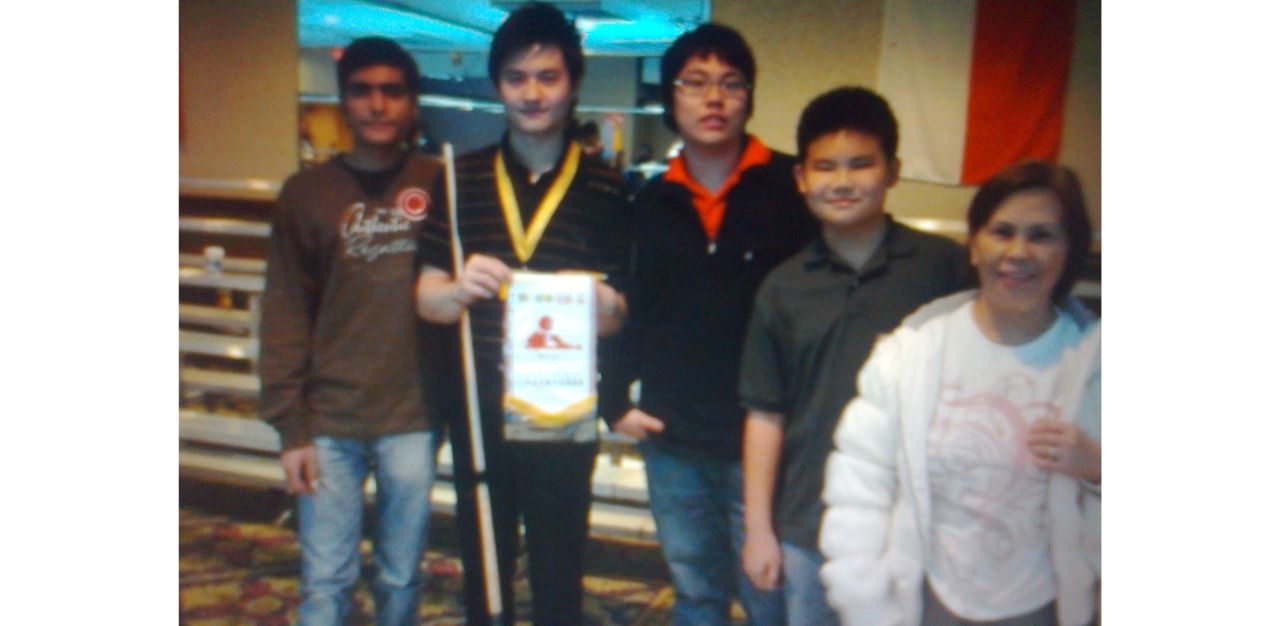
“In Reno, Aloysius lasted the longest of the Singaporean players in competition despite being the youngest player of the tournament. Even the tournament director was impressed, and he said to me the boy has a bright future,” recalls Pang. “After he came home, his mind was completely stuck in pool.”
Yapp concurs, “It took that first trip to the US for the World Junior Championship in 2008 to convince me this is I wanted to do this for a living. Meeting all the future top players there such as Taiwan’s Ko Pin-yi, who won the tournament that year, really inspired me. When I got back to Singapore, I realised this is the thing for me.”
Even Tay was surprised by his son’s strength of conviction. “The 2008 World Juniors was his first international competition, and he was so awed by the atmosphere that after he came back from that trip, he kept on pondering over it. Eventually, he told me that he really wanted to play pool. I was surprised by his strong sense of attachment to the game that he wanted to just go all out and didn’t want to do anything else,” she says.
Aloysius would not return to the World Juniors until 2011, although the die was already cast as he continued down his chosen path.
New routines – stepping into competitions
Entering secondary school, young Aloysius already ahead of his schoolmates at St Patrick’s School on one count – he knew what he wanted to do for the rest of his life, and he was willing to work for it.
Recalls Pang, “He’s very hard working and he’s got the talent, he has a goal and has the determination to go all the way in this game. No matter how hard I pushed him to stay focused on schoolwork, he was determined to just play pool.
“By the time he was 13, he was beating everyone who came to the shop, playing on the 7-foot table. I realised he needed to start playing on the competition standard 9-foot table. So, I got him a junior sporting membership at the Chinese Swimming Club where they had a wonderful billiards and snooker room, and he started training there by himself.
“At the Chinese Swimming Club, he could work undisturbed, and he was very focused on his work. He would put his laptop there and record his own training.”
Tay appreciated the change in her son’s routine. “It was excellent that Paul managed to get Aloysius signed on at the Chinese Swimming Club. He would go there every day after school and work on his game, coming home at night, often around 9 or 10pm, after putting in six to seven hours of training. It was a controlled environment where he could work without distractions.
“There wasn’t a dedicated coach for Aloysius who only had Paul mentoring him all along. Paul had always believed that Aloysius had that raw talent in him, and he just needed some guidance on how the shots had to be made and he would practise over and over again until he gets them right.”
By then, Pang had also decided it was time to expose Aloysius to the competitive environment, which kickstarted a new weekend routine.
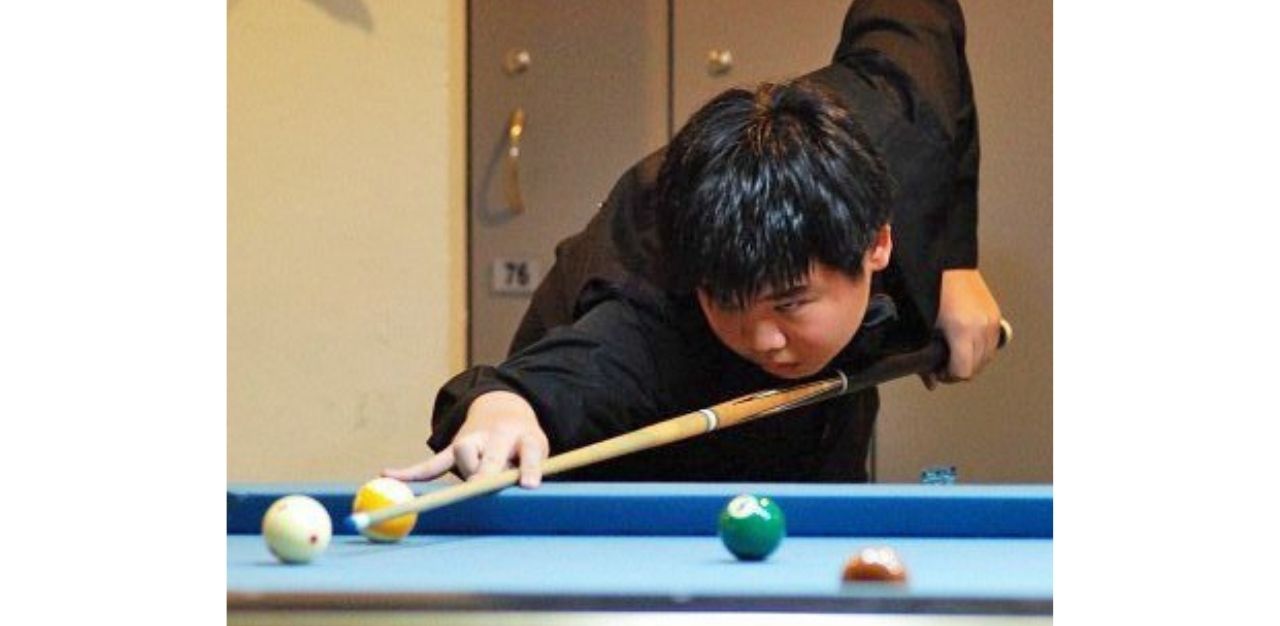
“I started bringing him to more local competitions while he was in Secondary 1 and 2, we went to all the weekend events,” recalls Pang. “It’s always the four of us, my wife and I along with Aloysius and his mother, attending all the competitions at any and every venue across all parts of Singapore. At the age of 13, he was whacking people upside down. He was very impressive and people started taking notice.”
Adds Tay, “We could see him progressing with each tournament and Aloysius himself could see his own improvements and he wanted to go even farther. And he told me he wanted to concentrate on playing pool full time, and that was when I spoke with Paul and we discussed how we should go about doing this.”
Competition results showed an upward trend for Aloysius, who played his first Singapore National 9-Ball Championship as a 13-year-old in 2009, making the last 64, and improved to 17th place the next year in the same competition. At age 14, he won his first National Under-19 9-Ball Championship, and would remain unbeaten in this competition until he outgrew the age limit. And he was also mixing things up, competing in snooker as well to sharpen his aim and improve his cueing discipline.
Leaving school, with help from a parable in the Good Book
It wasn’t long before school started getting in the way of Aloysius’ pool ambitions, not that he wasn’t trying his hardest to marry both.
Recalls Pang, “Aloysius wanted to stop school when he was 14, and I told him he cannot do that. I even told him to stop coming to the shop if he wanted to stop going to school. But it was clear he was head over heels into pool, so much so that even for the school art projects he would draw things connected to pool, such as the ball, chalk and cues.
“Then one day his Grandma rang me and said ‘Ah Boy didn’t go to school’, and I found out that the school wanted to expel him for being frequently absent. I went and spoke to the school principal at St Patrick’s, and even offered to set up a CCA (co-curricular activity) for Aloysius, and told the principal the boy’s a national standard player. And the principal at St Patrick’s actually agreed.
“I also went and spoke with his mother and told her that he’s just a couple of years away from his ‘O’ Levels, and to make it as a pro player, he has to be better than the best players Singapore has produced so far but have been unable to make a living as a fulltime playing professional. These are decent enough players but who have gotten nowhere with their standard. Aloysius needed to be way above them to be able to make a living.”
Allowing Aloysius to stop going to school was a tough decision for Angie Tay, though not unexpected.
“I wasn’t really surprised he wanted to stop school because he was telling me he found it disruptive to balance studies and playing competitions, especially when he had to go overseas. Every time he had to leave Singapore, we would have to write to the school to request for a leave of absence, and when he came back, he would have missed certain topics for his subjects which he found difficult to catch up,” she says.
“His classmates also found it very disruptive when they have to do projects together and he’s not there to contribute. So, it’s disruptive for both him and his classmates at St Patrick’s. When I realised I couldn’t really align his school and tournament schedules, I had a good talk with Paul and we decided perhaps we should let him concentrate on training fulltime in pool so that he can go far and take part in tournaments without disruptions.”
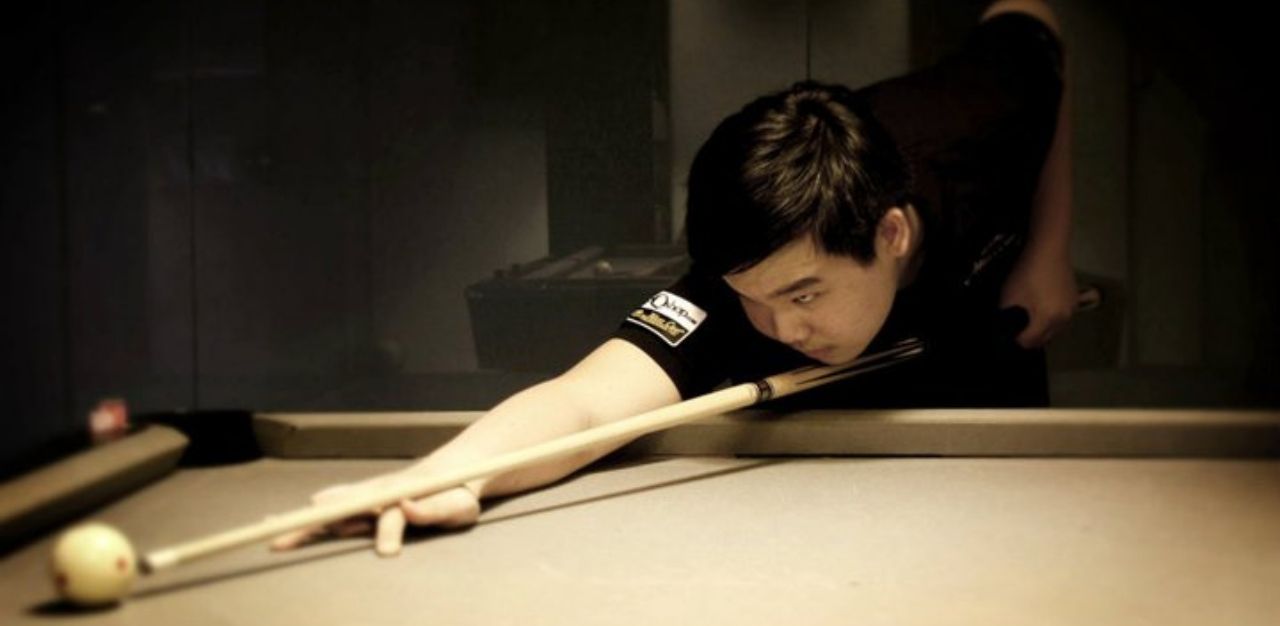
It wasn’t a decision that friends necessarily agreed with, recalls Tay, although she had the backing of her family.
There was also a little sign from God, as Yapp recalls, “I grew up a Catholic and we went to the Holy Trinity Church in Tampines. And just around the time when I was giving my mum the headache about leaving school, the priest delivered a sermon saying one should not waste God’s given talent. I guess my mum took that as a sign.”
Tay’s recollection is somewhat similar, although less dramatic. “There is a parable in the Bible that says that if God gives you a talent, you’re supposed to make use of it and not keep it buried. And I thought since God has given Aloysius the talent to play pool, then I should support it all the way.”
With that divine approval, there was now no turning back for Yapp.
Join the conversations on TheHomeGround Asia’s Facebook and Instagram, and get the latest updates via Telegram.














